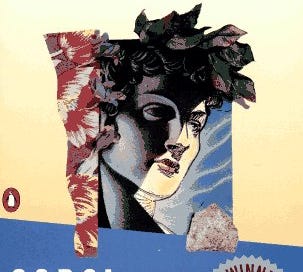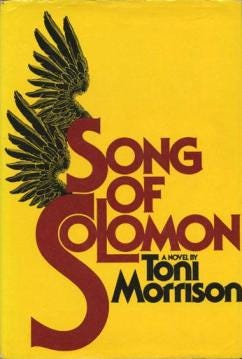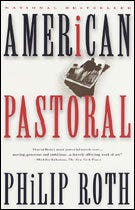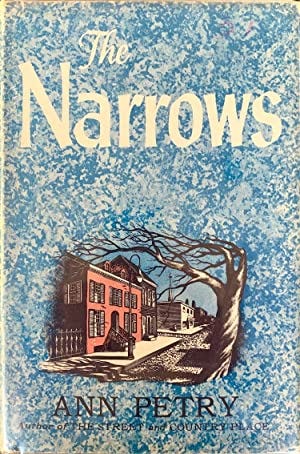In the first installment on what makes the perfect novel, perfection seems to reside in significance, as well as prose that invites the reader into a new world – the writing a perfect confluence of voice, structure and language, more meaningful than plot, but great storytelling. All perfect novels are unforgettable and bursting with the universal truths that distinguish great fiction. For the sake of contrast, a classic may be a perfect novel that has stood the test of time and a perfect novel one that has the potential to be a classic.
The first novels highlighted were:
§ The Remains of the Day [1984] Ishiguro
§ Crossing to Safety [1987] Stegner
§ To Kill a Mockingbird [1960] Lee
§ The Razor’s Edge [1944] Somerset Maugham
§ The Great Gatsby [1925] Fitzgerald
§ Charming Billy [1977] McDermott
§ Evidence of Things Unseen [2003] Wiggins
§ Let the Great World Spin [2009] McCann
As I review these titles, and others, I see in them all the wow factor – that book you want to tell everyone to read. Literary magic. So it seems perfection is not only in the language or construction, although especially so, but also the greater meaning. On the other hand, the Nobel Prize winner Knut Hamsun argued “the main object of modernist literature should be the intricacies of the human mind.” I would suggest the intricacies of human relations. Many perfect novels are award winning, some sell well, but an original compelling story told well is the essence of perfection, and hard to achieve.Next in line… Possession [1990] by A. S. Byatt, awarded the Booker Prize. This gorgeous riveting novel is the delicate balance between then and now, dialogue and prose, with a heavy dose of romance and humor, plus an entirely invented body of work for fictitious Victorian poets! Absolutely nothing like it. Imaginative and smart, and a masterful parody of academia. Possession may have less political or cultural resonance of the other novels cited, but an abundance of heart and exquisite writing. Perfection is in the balance of many moving parts.
Song of Solomon [1977] by Toni Morrison, winner of the National Book Critics Circle Award. Hard to choose which of this brilliant original writer’s fiction is most perfect, and most would lean to Beloved, which is perfect. However Song is my personal favorite. An allegory of mankind’s relation to the divine and the incessant search for identity – the legacy of slavery embedded through generations. Biblical in style and character, and circular in structure (Morrison’s métier) this tragedy is Shakespearean and meaningful to anyone who has ever aspired to what is owed. The perfection of Song of Solomon is the prose poetry and the power of Morrison’s storytelling.
The Stone Diaries [1993] by Carol Shields, awarded the Pulitzer Prize. Perhaps the most deceptively simple perfect novel ever written, this is the linear telling of a woman’s life from the turn of the [20th] century through its end. From birth to death, chapters line up to the defining moments of all our lives and mirror a rapidly shifting culture. Orphaned at birth, through an unsettling childhood to a premature widowhood, the protagonist is the epitome of resilience, rising above her limitations to achieve more than what might have been her destiny while facing the oppression of gender. The novel reveals the personal in the political, thus significant and relevant, and timeless, despite its portrait of that century, and beautifully told.
The Sound of Things Falling [2011 in Spanish, 2013 English translation] by Juan Gabriel Vasquez. Winner of the International Dublin Literary Award. At heart, this is a complex hypothesis of the genesis of the Colombian drug trade, aided and abetted, intentionally or otherwise, by American imperialism. It’s about the lingering conflict of innocence and opportunism. It’s also a novel about memory and forgiveness. Vasquez, who calls himself the “non-magical realist” in contrast to his famous Colombian brethren Garcia Marquez, deftly weaves the personal and the political together in a place we don’t often read about in this way. He is a master storyteller telling important stories.
A Fan’s Notes [1968[ by Frederick Exley, is too often overlooked. Called a masterpiece, with good reason, the novel revolves around a self-professed failure. Brilliantly evoking the importance of the witness in human life – in this case, the sport spectator – he is one of literature’s great dreamers. Delusional, constantly battling despair, he is wise beyond measure. The language is as exalted as the narrator is defeated and the novel a testament to human frailty and resilience. Perfection here is universality: aren’t we all the player or the witness, and don’t we need each other to survive? In this season of Power of the Dog, which is, by the way, another perfect novel [comments to come] themes of celebrity culture, toxic-masculinity, self-absorption and addiction ring as true now as then. An unforgettable gem.
American Pastoral [1997] by Philip Roth, winner of the Pulitzer Prize. This first in the “American” trilogy has to do primarily with the failures of the American dream. An unequivocally perfect novel – eloquent in voice, complex and compelling characters, great tension, and a perfect punch in the end. Although Roth was accused of writing “Jewish” novels and most of his large body of work featured Jewish immigrants after WWII, their struggles might be written about many marginalized groups in the 20th century. In this case, we see the rise of one family parallel the country’s post-war optimism and economic boom, and the simultaneous crash of the revolutionary sixties. An extraordinary story told in extraordinary prose, perhaps a modern-day classic.
Okay, one more for this edition, because I read it recently: The Narrows [1953] by Ann Petry. A multi-dimensional multi-racial sage told through the landscape of co-mingled characters living and working in a small town in Connecticut, mid-century. Time seems locked in place: black and white segregated, interracial marriage against the law, and while the country is experiencing an economic boom, little trickles down. But people take care of each other in small towns. They take in orphans. They take in boarders. They do the right thing, until opportunism fractures their community. Most critics recognize Petry’s first novel, The Street, as the perfect novel, and it is – the first by an African American woman to sell more than a million copies – but I was stunned by this discreet tapestry of rich and poor, black and white, aspirational and lost souls. A stunning achievement and perfect in the telling.
What they all have in common is wow factor – that book you want to tell everyone to read, beyond simple page-turners. Perfection is not only in the language or construction, although especially so, but also the greater meaning. As Nobel Prize winner Knut Hamsun argued “the main object of modernist literature should be the intricacies of the human mind.” I would suggest the intricacies of human relations.
Some of these are hard to come by – check the library or an online used bookstore if your local can’t get for you. All in paperback, some on your favorite e-reader, but not audio. Perfect novels are often relegated to the “backlist” but that’s where the greater treasures are.







